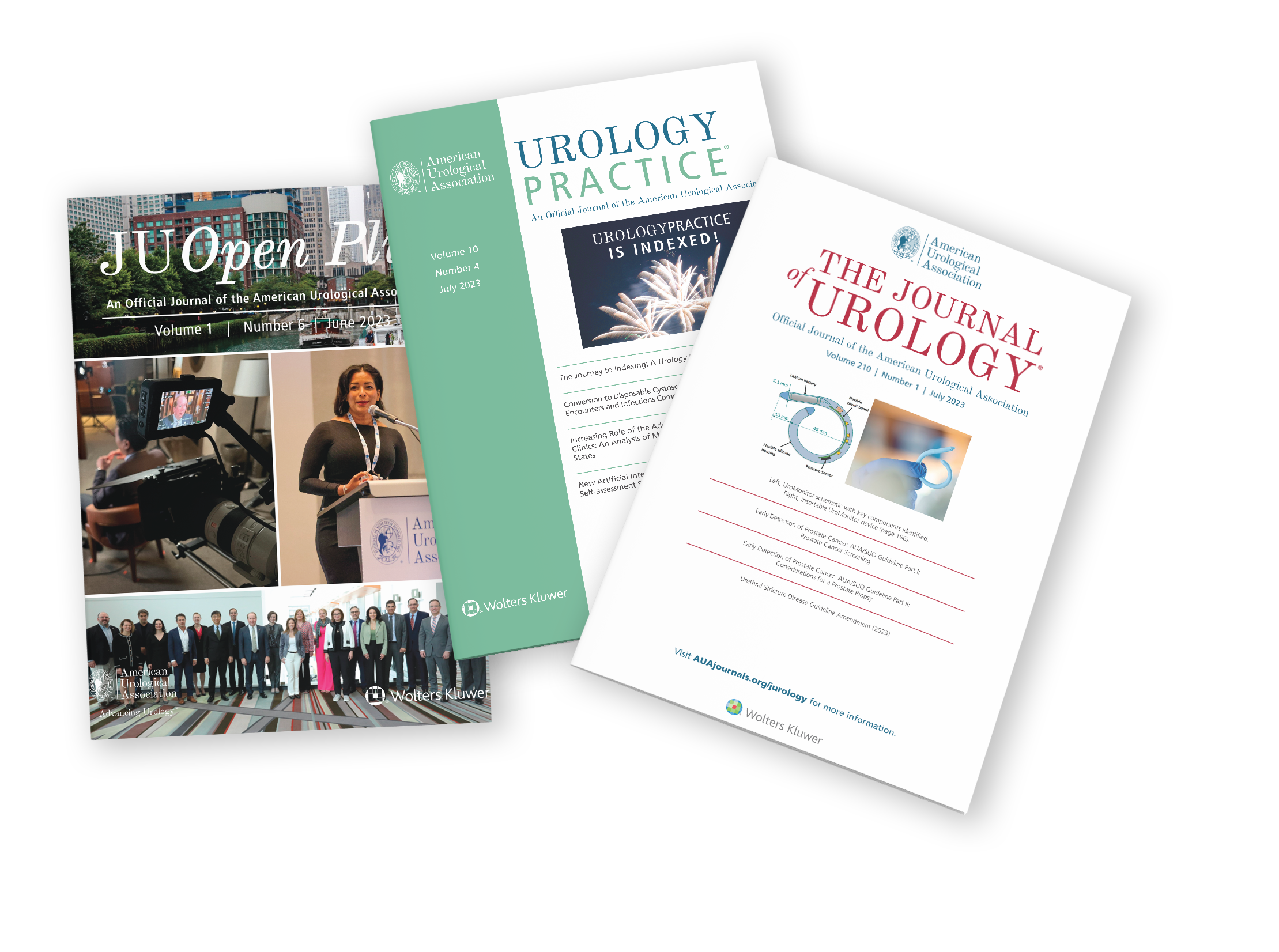Attention: Restrictions on use of AUA, AUAER, and UCF content in third party applications, including artificial intelligence technologies, such as large language models and generative AI.
You are prohibited from using or uploading content you accessed through this website into external applications, bots, software, or websites, including those using artificial intelligence technologies and infrastructure, including deep learning, machine learning and large language models and generative AI.
AUA2025 Abstract Submission Site Open!
Abstract submissions for the 2025 Annual Meeting in Las Vegas, NV, are due Nov. 6, 2024. Don't miss this chance to share your research and participate in the world’s foremost meeting in urology!
advertisement
advertisement
Member Advantages
- The AUA is Now Accepting Applications for its 2025-2026 AUA Leadership Program!
- The AUA Leadership Program is designed for urologists who have demonstrated leadership skills within organized medicine and who wish to further develop these skills to become the AUA leaders of tomorrow. Applicants from each AUA Section are selected to participate in this highly competitive, year-long program. Learn More and Apply
- FREE Webinar: Complexities and Challenges in cUTIs – An Update for Urologists
- Join this free webinar on on October 19 at 3 p.m. ET as distinguished clinicians and researchers in the field of urology discuss the latest strategies in managing complicated urinary tract infections (cUTIs). Can't make the live event? View on-demand the next day! Learn More
- NEW! AUA Masterclass in Executive Leadership Program. Applications Close in Three Weeks!
- A unique new weekend program designed for mid-career professionals looking to strengthen and grow their executive leadership skills. Learn More
Upcoming Events
Latest from Journals
JU | September 2024
Development of a Novel Prediction Tool for Response to First-Line Treatments of Monosymptomatic Nocturnal Enuresis: A Randomized, Controlled, International, Multicenter Study (DRYCHILD)
Nocturnal urine volume and bladder reservoir function are key pathogenic factors behind monosymptomatic nocturnal enuresis (MNE). We investigated the predictive value of these together with other demographic and clinical variables for response to first-line treatments in children with MNE.

Census By the Numbers
Less than 20% of urologists would provide telehealth services if reimbursement were reduced below parity with in-person services.
Learn MoreLess than 10% of reported primary practice locations are in non-metropolitan areas.
Learn MoreThere were 14,176 U.S. practicing urologists in 2023, a 1.4% increase from 2022.
Learn More




